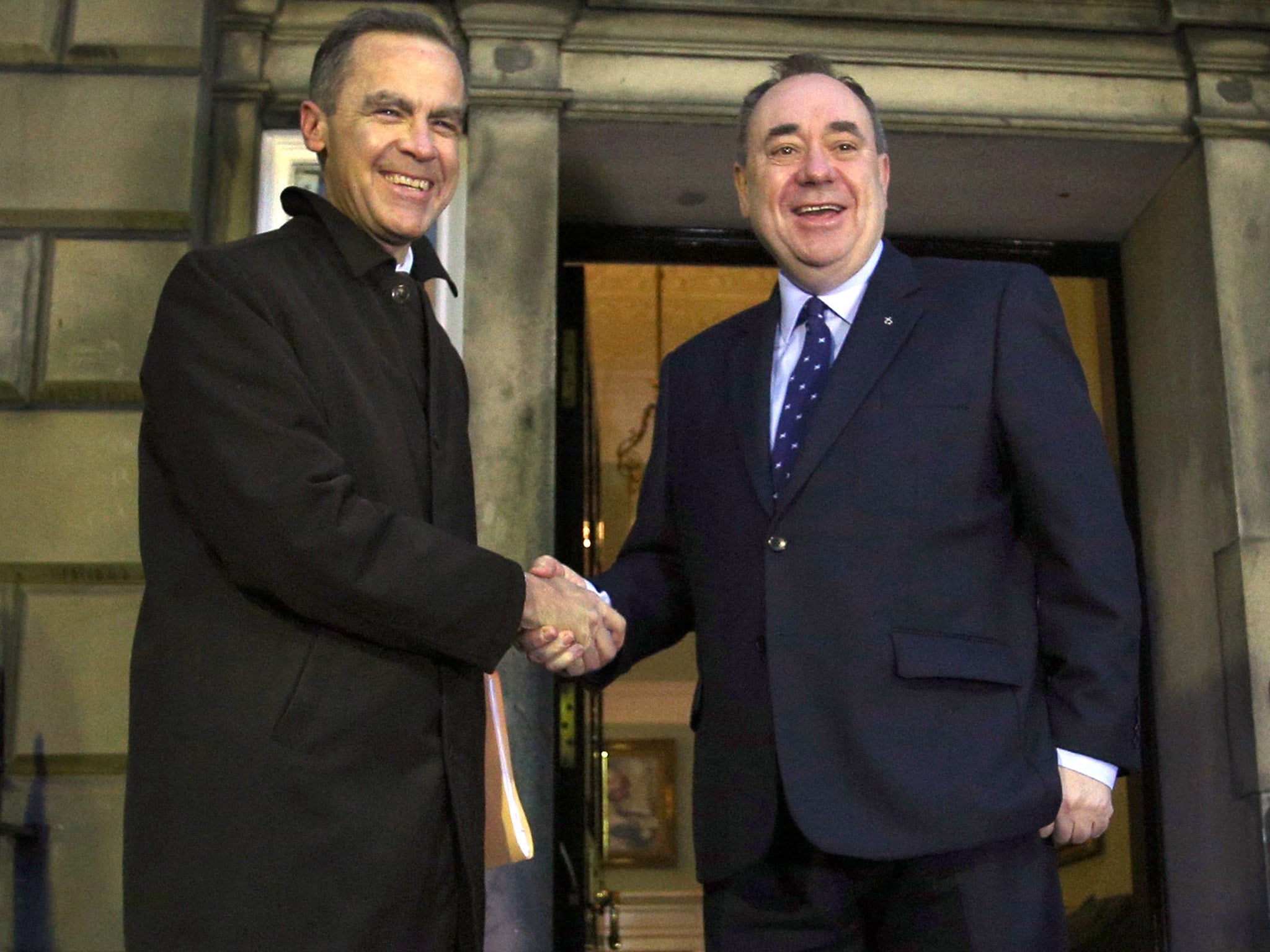Scottish referendum: Mark Carney warns that Scottish pound would come at a price
Governor says an independent Scotland will have to concede "some sovereignty" if it wants to keep the pound

An independent Scotland would have to give up a significant amount of its freedom to tax and spend if it wanted to form a currency union with the rest of the UK, the Governor of the Bank of England has warned.
In his first intervention in the independence debate, Mark Carney said that unless Scotland was prepared to cede some of its economic sovereignty then it could lead to eurozone-style crises in the future.
But he made clear that any decision on a currency union would have to be made by the two country’s respective Parliaments.
Mr Carney made his remarks in a speech just hours after his first face-to-face meeting with Scotland’s First Minister, Alex Salmond, in Edinburgh.
“Any arrangement to retain sterling in an independent Scotland would need to be negotiated between the Westminster and Scottish parliaments,” he said. “[But] if such deliberations ever were to happen, they would need to consider what the economics of currency unions suggest are the necessary foundations for a durable union, particularly given the clear risks if these foundations are not in place.”
Mr Carney warned that in a currency union the Scottish government could be forced to adopt “pro-cyclical” fiscal policies in order to combat economic shocks – which could in turn aggravate any downturn.
“In the extreme, adverse fiscal dynamics could call into question a country’s membership of the union, creating the possibility of self-fulfilling ‘runs’ on bank and sovereign debt absent [from] central bank support,” Mr Carney said.
He added: “In short, a durable, successful currency union requires some ceding of national sovereignty. It is likely that similar institutional arrangements would be necessary to support a monetary union between an independent Scotland and the rest of the UK.”
The Scottish Government wants to retain the pound if the country votes for independence, establishing a “sterling zone” with the rest of the UK. But economists have warned that while currency unions can be sensible in principle, they require far greater economic and fiscal integration than Mr Salmond has so far conceded.
UK ministers including Chancellor George Osborne have cast doubt on whether the arrangement is possible. A Treasury spokesman said: “Governor Carney today highlights the principled difficulties of entering a currency union: losing national sovereignty, practical risks of financial instability and having to provide fiscal support to bail out another country.
“This is why the UK Government has consistently said that, in the event of independence, a currency union is highly unlikely to be agreed.”
But Scottish Finance Secretary John Swinney said: “Ultimately, as Mr Carney makes clear, a sterling area is a matter for the two governments to agree. Such a shared currency area is the common sense position as it is in the overwhelming economic interests of both Scotland and the rest of the UK.
Subscribe to Independent Premium to bookmark this article
Want to bookmark your favourite articles and stories to read or reference later? Start your Independent Premium subscription today.

Join our commenting forum
Join thought-provoking conversations, follow other Independent readers and see their replies